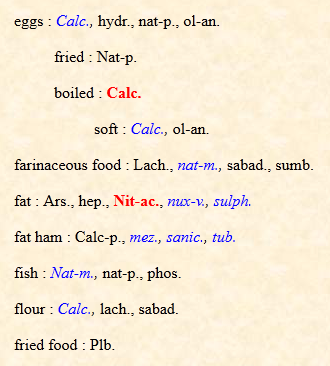Morphic Fields may help us to choose the Best Food
Wikipedia on Specific appetite
Specific appetite, also known as specific hunger, is a drive to eat foods with specific flavors or other characteristics.
Regulation of homeostasis is essential to the survival of animals. Because the nutritional content of a diet will vary with environmental and other conditions, it is useful for animals to have a mechanism to ensure that their nutritional needs are within the appropriate range. Specific appetite is one such mechanism. Specific appetite has been demonstrated in various species for a number of vitamins and minerals, as well as calories, protein, and water. Unfortunately, specific appetite is very difficult to study experimentally, as there are a number of factors that influence food choice. Very little is known about the specific mechanisms inducing specific appetite, and the genes encoding for specific appetites are mostly speculative.

Very few specific appetites for particular nutrients have been identified in humans. The most robustly identified are salt appetite/sodium appetite. The problem with many other nutrients is that they do not have distinctly identifiable tastes, and only two other specific appetites, for iron and calcium, have been identified with experimental rigour so far. Other appetites are thus currently classified as learned appetites, which are not innate appetites that are triggered automatically in the absence of certain nutrients, but learned behaviours, aversions to or preferences for certain foods as they become associated with experiences of malnutrition and illness.
Homeopathy and the Desire for Specific Food
Let’s take a look at a homeopathic repertory, a kind of database which lists the symptoms and the related remedies:

Each homeopathic remedy influences the organism so that a specific appetite appears. For example the symptom “desire for fish” contains 3 remedies, each elements or compounds of elements which are found in the sea and in the organism of fish itself: Natrium and phosphor
Regarding the materialistic theories of the specific appetite, most of this phenomenon is a “learned appetite“. But how can the high dilution of phosphor create specific appetite for fish?
Who makes a proving of a homeopathic remedy will experience a change in mood, in thoughts, in emotions, and also in the desires and aversions of food. Some of this desires are not explainable by simple “learned appetites“. The invisible fields of the homeopathic remedy are in resonance with the elements that a person need in a certain state of health or illness. Personally I made a lot of homeopathic proving and they all creates specific appetites, specific to their morphic field.
See also: